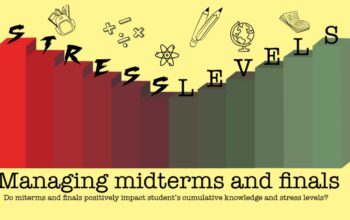
Audrey Piehl
Arts & Entertainment Editor
On Jan. 10 acclaimed author and Nerdfighter deity John Green published The Fault in our Stars. Since then, it has received universal praise from fellow writers and readers alike. Not to mention he signed every freakin’ copy, excluding a few like those at the high school library (my pre-order was signed in green sharpie. I smelled it immediately, like any totally normal person would.)
Now to mimic the “Author’s Note” format, this is not so much a book review as an exploration of how the Fault in our Stars forces one to think, act, and generally maneuver throughout daily life in an enlightened state. This may sound completely idiotic (or like an LSD trip gone horribly wrong), but it managed to accomplish just that.
This fifth novel by Green follows narrator Hazel, a seventeen-year-old girl with Stage IV cancer. Though granted a second chance via a miracle drug, tumors in her lungs keep Hazel perpetually entwined with cumbersome oxygen tanks and watchful parents. However one day her support group is joined by Augustus Waters, a boy of the same age, equipped with a prosthetic leg and an abundant supply of witticisms. Together they embark on adventures of the mind, the soul, the heart, and maybe even Europe.
Before I continue, let me just say this: The Fault in our Stars is not a cancer book, nor is it really a romance. In fact many of the revelations within its pages defy the definition of the former, and though the latter is tastefully sprinkled throughout, it never dominates the plot. Just in case you don’t believe me, I give you permission to judge a book by it’s cover. You may have noticed it isn’t a melancholic black or seductive red, but blue. A vibrant blue, with two clouds and two sets of chalky text. The Fault in Our Stars isn’t a diseased Twilight. Far from it.
Rather, the novel is about the side effects of dying, scrambled eggs, Holden Caulfield’s sister, Spartans, cigarettes, Dutch confetti, playgrounds, sly Star Wars references, and so forth. I would analyze each literary morsel, except it would constitute of spoilers and way too much text. It would also require a second, third, and perhaps even fourth read, though I can’t imagine that being a burden.
Jodi Picoult, author of My Sister’s Keeper, described the reading journey as, “An electric portrait…Filled with stoccato bursts of humor and tragedy.” One minute I found myself crying, the next I was laughing. To read it was to have my soul ripped out, delicately examined and reconstructed in a curious way, re-inserted, only to have the process recommence over and over again.
In the end it wasn’t about plot, characters, or any literary devices, but the heightened consciousness they create together. In fact, a friend of mine, who read the book before me because I’m too snobby to read one of the library’s unsigned copies, explained how you don’t talk about what happens in the book but how it makes you feel. We described it as communicating on a “third plane,” a section of space incidentally similar to something described in the novel itself.
It’s comforting to know John Green felt a similar way when he was writing, as revealed in a recent Vlogbrothers video, “I was very, very lucky to have many moments where I felt like it wasn’t me [writing], like I was somehow transcending the limits of myself.” Congratulations Mr. Green; we felt that way too.
Perhaps what creates this effect is the brutal but honest realism. Nothing is sugar-coated, but nothing is melodramatically horrid either. It is merely true; the fictional story of very non-fictional scenarios and obstacles. I found myself relating to every character on an extremely personal level, though their home-base of Indianapolis can be found miles away. Even cancer often ceased being an illness, but an entity any human could associate with.
But of course every one’s experience will vary. When themes such as “what will happen after I die” and “what is the meaning of life” come into play, variations in opinion are bound to occur. Indeed, that defines a fantastic piece of literature; when words can be contorted and tangled and untangled in a bazillion magnificent ways. In the end you are left with a book seemingly designed for you and you alone. Perhaps a few aspects are similar to the meaning other people find, but no two readings of Fault in Our Stars are identical. I can promise you that.



